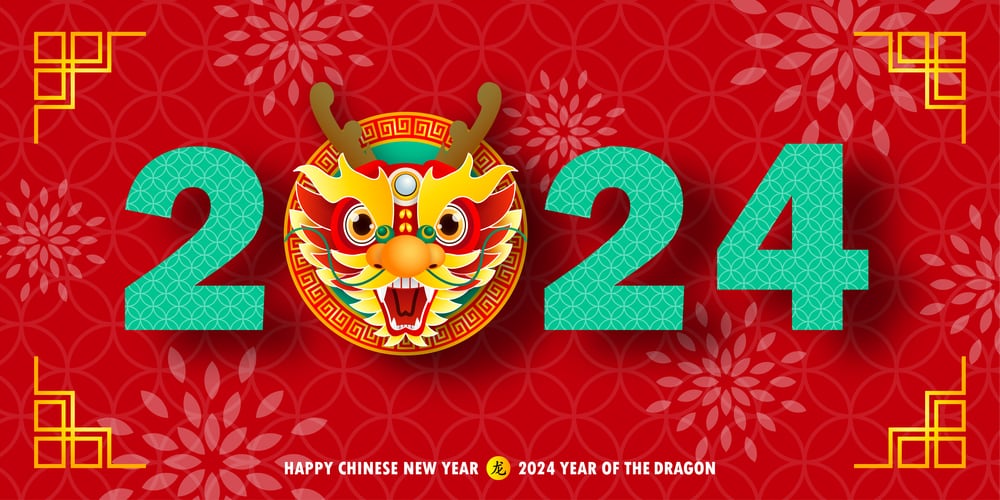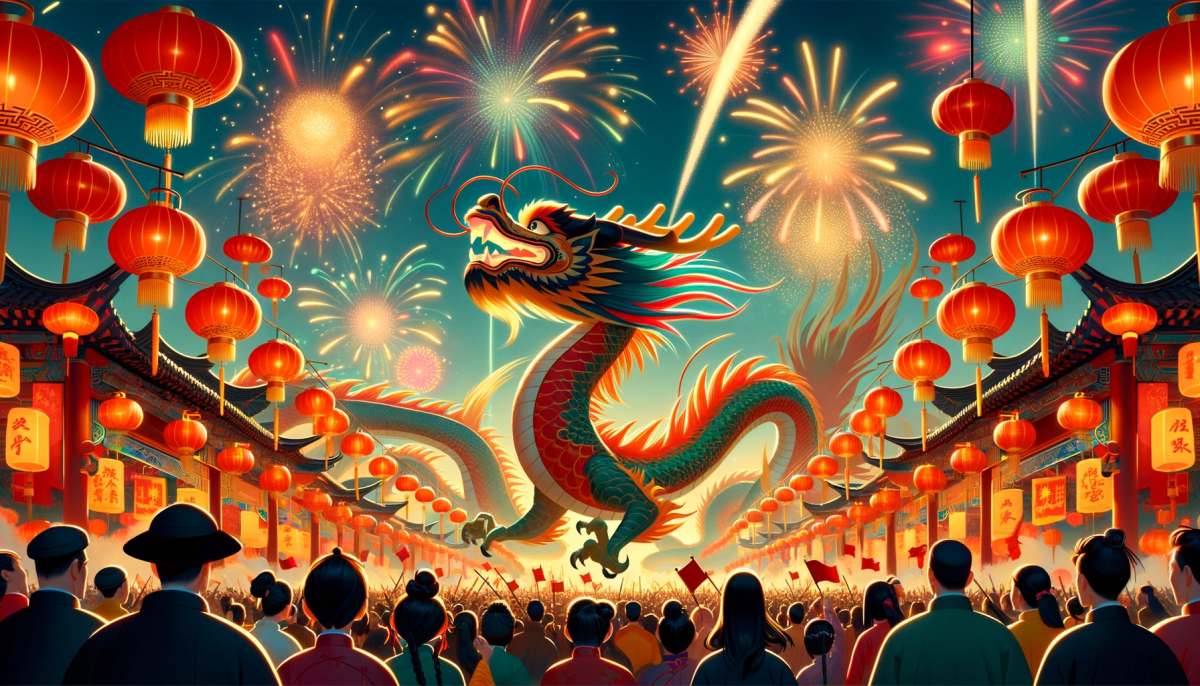Celebrating Lunar New Year: A Time of Tradition and Renewal

Lunar New Year, also known as Chinese New Year or Spring Festival, is one of the most significant and widely celebrated festivals in the world. It marks the beginning of the lunar calendar and is observed by billions of people across Asia and around the globe. In this article, we explore the rich traditions, customs, and symbolism associated with Bandar Slot Terpercaya.

The Significance of Lunar New Year
Lunar New Year holds deep cultural and historical significance for many Asian communities. It is a time to bid farewell to the old year and welcome the arrival of spring, symbolizing renewal, hope, and prosperity. Families gather to honor their ancestors, pay respects to elders, and strengthen bonds with loved ones. The festival is also an occasion for reflection, gratitude, and setting intentions for the year ahead.
Traditional Customs and Practices
Lunar New Year is marked by a myriad of customs and rituals, each carrying its own symbolic meaning. Here are some of the most common traditions observed during the festival:
- Spring Cleaning: Prior to the start of Lunar New Year, families engage in thorough cleaning of their homes to sweep away any lingering bad luck and make way for good fortune in the new year.
- Reunion Dinner: The eve of Lunar New Year is celebrated with a festive reunion dinner, where families gather to enjoy a lavish feast of traditional dishes. It is considered one of the most important meals of the year, symbolizing unity and abundance.
- Red Envelopes (Ang Pao or Hong Bao): Red envelopes containing money are exchanged as gifts during Lunar New Year, symbolizing good luck, prosperity, and blessings for the recipient.
- Lion and Dragon Dances: Colorful lion and dragon dances are performed in streets and public spaces to ward off evil spirits and bring good fortune to communities. The rhythmic movements of the dancers and the loud beats of drums are believed to bring prosperity and happiness.
- Fireworks and Firecrackers: The sound of fireworks and firecrackers is a ubiquitous feature of Lunar New Year celebrations, believed to scare away evil spirits and ensure a prosperous start to the year.
- Visiting Relatives and Friends: Throughout the festival, people visit the homes of relatives and friends to exchange greetings, share meals, and exchange well wishes for the new year.
Symbolism and Superstitions
Lunar New Year is steeped in symbolism and superstition, with various customs and practices believed to bring good luck and ward off misfortune. Some common symbols and superstitions associated with the festival include:
- The color red, symbolizing luck, joy, and happiness.
- Oranges and tangerines, representing wealth and prosperity.
- Nian gao (sticky rice cake), symbolizing growth, progress, and success.
- Avoiding sweeping or cleaning on New Year’s Day to prevent sweeping away good fortune.
- Refraining from using sharp objects or negative words to avoid cutting or “cutting off” luck.
- Conclusion: Embracing Tradition and Hope
Lunar New Year is a time of joy, unity, and cultural pride, bringing communities together to celebrate shared heritage and values. As we usher in the Year of the Ox or another zodiac animal, let us embrace the spirit of renewal, resilience, and optimism that Lunar New Year embodies. Whether through festive gatherings, heartfelt rituals, or acts of kindness, may this auspicious occasion bring blessings and prosperity to all who celebrate. Gong Xi Fa Cai! (Wishing you prosperity in the new year!
:max_bytes(150000):strip_icc():focal(749x0:751x2)/lunar-new-year-8-79db07041a3547ed8f3ba616a48e28c6.jpg)
Celebrating Lunar New Year: Traditions and Customs
Lunar New Year, also known as Chinese New Year or Spring Festival, is a vibrant and culturally rich celebration observed by millions around the world. If you’re interested in joining in the festivities or learning more about this auspicious occasion, here are some common ways to celebrate Lunar New Year:
- Reunion Dinner: Start the Lunar New Year celebrations with a festive reunion dinner with family and friends. Prepare traditional dishes such as dumplings, fish, spring rolls, and longevity noodles to symbolize prosperity, good luck, and long life.
- Decorate Your Home: Get into the festive spirit by decorating your home with red lanterns, paper cuttings, and other traditional decorations. Red is considered a lucky color and is believed to ward off evil spirits and bring good fortune.
- Give Red Envelopes: Participate in the tradition of giving and receiving red envelopes (known as “hong bao” or “ang pao”) filled with money. These envelopes symbolize blessings, good luck, and prosperity for the recipient.
- Attend Cultural Events: Look for Lunar New Year events and festivities in your local community, such as parades, lion dances, and temple fairs. These events offer opportunities to experience traditional music, dance, and cuisine, and to immerse yourself in the vibrant atmosphere of Lunar New Year celebrations.
- Wear New Clothes: Dressing in new clothes for Lunar New Year symbolizes a fresh start and the beginning of a prosperous year ahead. Red and other vibrant colors are popular choices, as they are believed to bring good luck and happiness.
- Pay Respects to Ancestors: Take time to honor your ancestors by visiting family gravesites or ancestral temples, offering prayers and incense, and paying respects to those who have passed away. This is an important tradition that strengthens family bonds and acknowledges the contributions of past generations.
- Watch Fireworks: If fireworks are permitted in your area, consider watching a fireworks display to ring in the Lunar New Year with a bang. Fireworks are believed to scare away evil spirits and bring good luck and prosperity for the coming year.
Exchange Well Wishes: Extend greetings and well wishes to family, friends, and acquaintances by saying “Gong Xi Fa Cai” (Mandarin) or “Gong Hey Fat Choy” (Cantonese), which means “Wishing you prosperity” or “Congratulations and be prosperous.”
Enjoy Traditional Foods: Indulge in Lunar New Year delicacies and treats such as rice cakes, sweet dumplings, and citrus fruits. These foods are believed to bring good luck, abundance, and sweetness into the new year.

Reflect and Set Intentions: Take some time to reflect on the past year, express gratitude for blessings received, and set intentions and goals for the year ahead. Consider participating in traditional activities such as writing wishes on wishing trees or hanging red scrolls with auspicious messages.
By embracing these customs and traditions, you can join in the joyous celebrations of Lunar New Year and usher in a year filled with happiness, prosperity, and good fortune. Happy Lunar New Year!
Read More Article About “Nothing Empathy Understanding the Impact of Apathy Others“




Leave a Comment